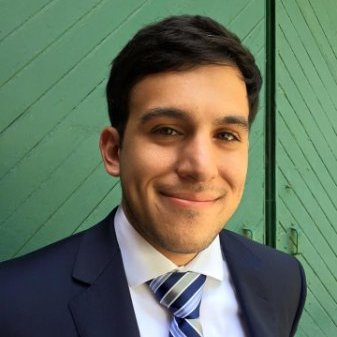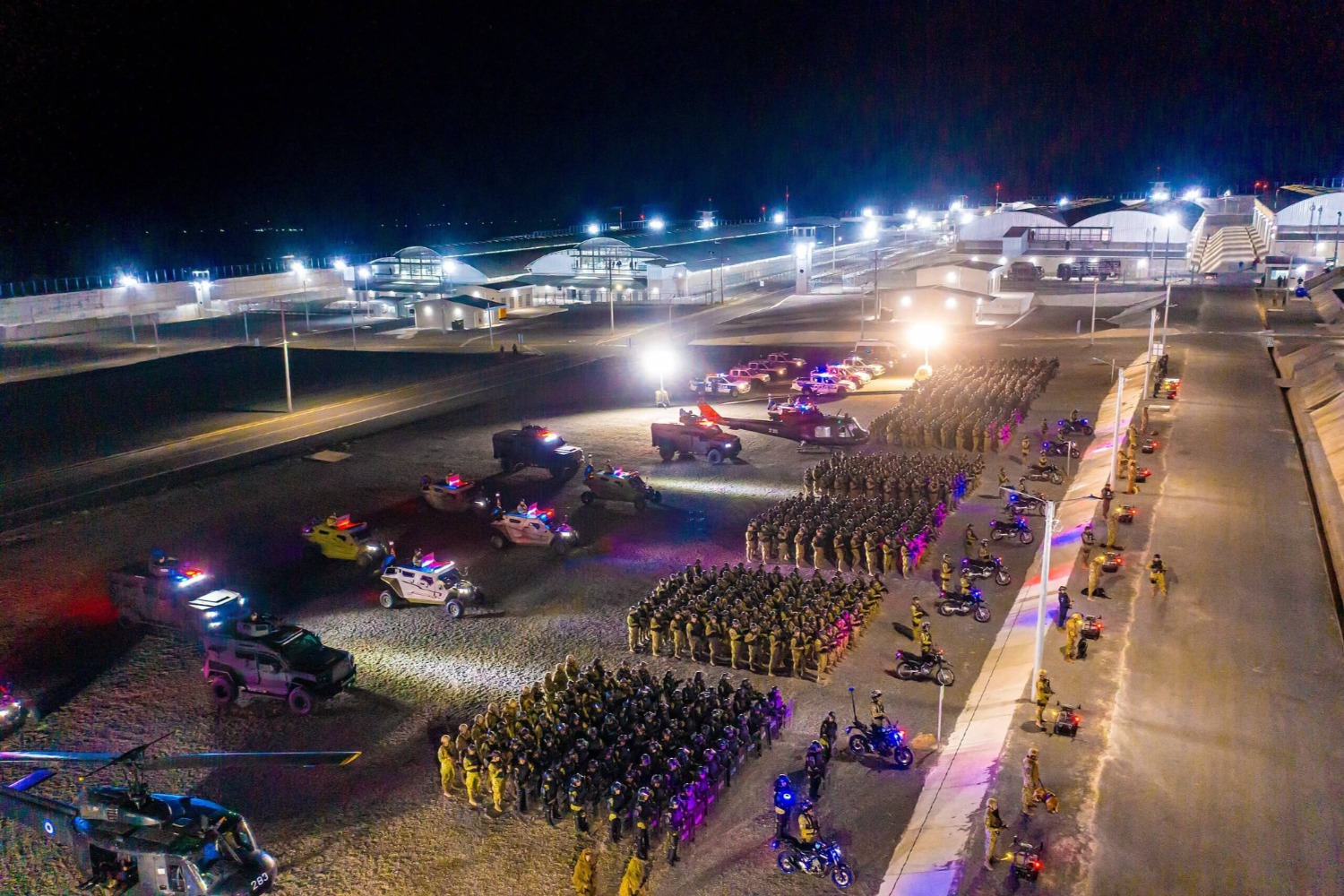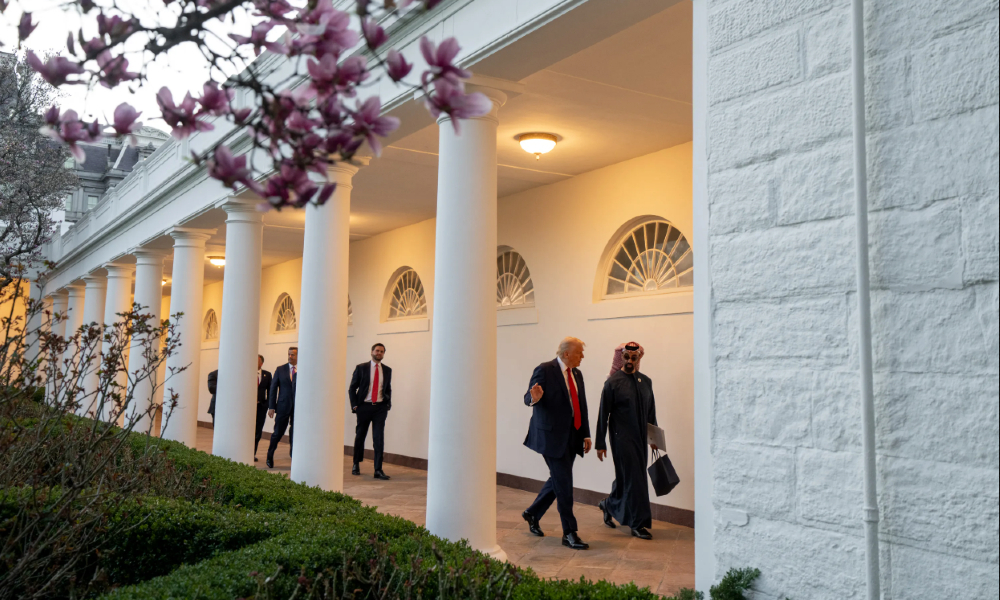Water Wars: A Mixed Week for Alliance Management
Washington Re-Engages Asian Allies
Published by The Lawfare Institute
in Cooperation With

Washington Re-Engages Asian Allies
President Donald Trump on phone with world leaders (Photo: Yahoo News)
James Mattis traveled to Japan and South Korea this week, his first overseas visits as Secretary of Defense. A Trump administration official said the trip was intended “for all of the people who were concerned during the campaign that then-candidate, now-president, Trump was skeptical of our alliances and was somehow going to retreat from our traditional leadership role in the region.” The North Korean nuclear threat was a focal point for Mattis’ consultations in Seoul and Tokyo.
In a departure from some of President Trump’s rhetoric on the campaign trail, Secretary Mattis did not ask Japan or South Korea to pay a larger share of expenses associated with hosting US forces. Nearly 80,000 American troops are stationed in South Korea and Japan. In talks with South Korean Defense Minister Han Minkoo, Mattis reaffirmed Washington’s commitment to the Terminal High Altitude Area Defense (THAAD) anti-ballistic missile system. Mattis reiterated that THAAD is intended as a defensive measure against North Korea, though Chinese Foreign Ministry spokesperson Hua Chunying still repeated Beijing’s “serious concern and firm opposition” to the system. In Tokyo, Mattis is expected to reaffirm the Obama administration’s 2014 pledge that the US-Japan Security Treaty covers the Senkaku/Diaoyu Islands. Relations between China and Japan in the East China Sea have deteriorated significantly since 2012 when Japan nationalized the islands. President Trump will meet with Japanese Prime Minister Abe on February 10, one of the Trump administration’s first international summits. During a phone call this week with Abe, Trump “affirmed the ironclad U.S commitment to ensuring the security of Japan.”
President Trump’s phone call with the leader of another key Asian ally, Prime Minister Malcolm Turnbull of Australia, was less reassuring. In what was meant to be an hour-long call, Trump strongly objected to an Obama administration commitment to accept approximately 1,250 refugees currently held in Australian detention facilities on Manus Island and Nauru. Many of these refugees are from countries included in Trump’s executive order on immigration. Trump reportedly told Turnbull that “this is the worst deal ever,” though Turnbull reiterated that the United States was only committed to allowing each refugee through the normal vetting procedures. After 25 minutes, President Trump ended the call. The next day, White House Press Secretary Sean Spicer reaffirmed that the refugees would be subject to “extreme vetting,” though a separate White House source reportedly said that Trump was still considering the deal. A day later, Senator John McCain called Australia’s Ambassador to the United States to express his “unwavering support for the US-Australia alliance.” Hous Speaker Paul Ryan similarly opined that Australia should not be worried about "its relationship with our new president, or with our country."
In other news...
China
A senior Chinese military official made waves this week by writing that war with the US is no longer “just a slogan” and is becoming a “practical reality.” A leaked strategic document from the People’s Liberation Army (originally ussued in May 2016) similarly argued that the United States is China’s largest strategic threat. North Korea’s nuclear development came in at number two, conflict with Japan in the East China Sea at number three, and disputes in the South China Sea at number four. The report noted that China “cannot be optimistic” about its military power in the South China Sea given limits to its effective control of the region.
There were a number of developments in China’s military capacity this week. Maritime Executive reports on a number of technological improvements to China’s indigenous shipbuilding capacity, including an upgraded design for floating nuclear platforms and expanded submersible construction. Beijing’s second aircraft carrier, the first designed and built in-country, is also reported to be “taking shape,” although after nearly three years of construction a definite delivery date has not yet been released. Once completed, sources indicate that the aircraft carrier is likely to be based near the South China Sea. Chinese sources also report that Beijing is developing a new long-range air-to-air missile that one Air Force researcher alleged has a range of almost 250 miles. According to the China Daily, this missile would be capable of taking out early warning aircraft and aerial refueling aircraft. If the 250-mile range is correct, the missile would extend beyond that used by Western air forces. For an overview of Beijing’s missile arsenal, see this thorough overview from CSIS.
Finally, State Councilor Yang Jiechi, previously Foreign Minister and Ambassador to Washington, provides an overview of President Xi Jinping’s foreign policy for our Chinese readers. On that topic, the South China Morning Post outlines how President Xi has amassed “unrivaled” power by taking on, or creating, multiple roles overseeing most areas of government. In particular, Xi has been particularly effective at consolidating control over the Chinese national security establishment.
United States
President Trump’s Chief Strategist, Steve Bannon, has received considerable attention over the past week after National Security Presidential Memorandum 2 made him a regular member of the National Security Council’s Principals Committee. Since then, reports have resurfaced concerning some of Bannon’s national security views. In a March 2016 interview, Bannon argued that “there’s no doubt” that the US would be “going to war in the South China Sea in five to ten years.” He had also criticized China for “taking their sandbars and making basically stationary aircraft carriers and putting missiles on those.” We’ll see if, and how, these ideas might be challenged now that Rex Tillerson has been confirmed as Secretary of State.
Finally, Pacific Fleet is assessing damage after an “engineering incident” wherein the guide-missile cruiser USS Antietam dumped a significant amount of oil into Tokyo Bay.
The Philippines
It was another whirlwind week in the Philippines as well. It started with a poll showing that 84% of Filipinos agreed that the government should uphold Manila’s rights in the South China Sea. Only 3% disagreed. Responding to the survey, Presidential spokesperson Ernesto Abella told reporters that President Rodrigo Duterte is asserting Philippine interests, “but in a different diplomatic style.” Abella also asserted that Manila’s “soft-landing” approach gave Duterte an advantage in bilateral talks with the Chinese and that the administration would “not giv[e] up our claims in the EEZ.”
The survey does not seem to have changed Duterte’s stance towards Manila’s relationship with Washington. After the Pentagon approved the construction of warehouses, barracks, and runways on Philippine bases, Duterte accused the United States of risking regional instability by building permanent arms depots. He alleged that Washington was “unloading arms in the Philippines now” and attested that “I don’t even know if there is a nuclear tip [missile] now, that they are unloading.” The next day, however, military spokesperson Brigadier-General Restituto Padilla clarified that the US was in fact providing materials to help the Philippines better handle natural disasters. US-run permanent weapons depots are not permitted under Washington’s military agreement with Manila. Another Philippine military officer told reporters that US-built facilities would be used jointly. US Ambassador Sung Kim also confirmed that Washington is “not building a weapons depot anywhere in the Philippines.”
While testy relations with Washington continue, Duterte continues to explore partnerships with China and Russia. President Duterte “asked China if they can patrol the international waters” between the Malacca Strait and the Sulu Sea to stop the expansion of piracy near the Philippines. Duterte was careful to tell reporters that though Manila “would be glad if we have their presence,” Chinese ships, even if “just a Coast Guard cutter,” should not “intrude[e] into the territorial waters of the country.” A number of Chinese analysts project that Beijing will acquiesce to the request since the waters in question are not subject to territorial or jurisdictional disputes. Defense Minister Delfin Lorenzana announced that the Philippines is looking to purchase a range of military hardware, including submarines, from Russia. One of Lorenzana’s priorities for an upcoming State visit to Russia is also to sign a Memorandum of Understanding that would allow exchanges between the two militaries. Joint military exercises, which would require a treaty, do not seem to be on the table in the short-term.
Japan
A recent poll found that 83.8% of Japanese people are concerned that President Trump could create global instability. At the same time, 59.6% of the population support Prime Minister Shinzo Abe’s cabinet, 4.8 percentage points higher than a previous survey last month. Responding to this new strategic environment, Abe announced that Tokyo and Washington might hold bilateral free trade talks. And in a move likely to provoke Beijing’s ire, the Education Ministry is planning to write into curriculum, for the first time, that the Senkaku/Diaoyu Islands are an “inherent part of the territory of Japan.”
Singapore
As announced last week, nine troop transport vehicles seized by Hong Kong officials were returned to Singapore. The troop transport vehicles were detained for two months en route back from military exercises in Taiwan. Analysts project that this spat, combined with a need for larger training bases, will lead Singapore to reduce defense ties with Taiwan over time. In other news, Philippine Defense Minister Delfin Lorenzana told reporters that it may revive a military training agreement within the next year.
Thailand
Notwithstanding last week’s news that Commander of US Pacific Command Admiral Harry Harris will visit Thailand later this month, Thai officials approved 380 million USD to buy a submarine as well as ten tanks and auxiliary vehicles from China this year. Thailand purchased 28 main battle tanks from China in 2016.
Indonesia
In addition to deploying an additional 7,000 police officers to the Riau Islands in the South China Sea, as announced last week, the Riau Islands Police will establish a Mobile Brigade in anticipation of escalating conflict in the region.
Australia
Before this week’s tense phone call with Washington, Foreign Minister Julie Bishop warned the US not to retreat from the Asia-Pacific, arguing that Washington is “the indispensable power throughout the Indo-Pacific.”
Malaysia
Malaysian authorities expanded their search for six people, including five Chinese tourists, still missing after their boat sank off Borneo Island in the South China Sea. Twenty-two people were rescued, though three Chinese tourists died.
Analysis, Commentary, and Additional Information
Analysis of strategic concerns in the South China Sea continues unabated. Bill Hayton penned a piece in the journal of Ocean Development and International Law on how lawyers have misunderstood the South China Sea’s historic development. Amy Searight and Geoffrey Hartman at AMTI provide an essential overview of the South China Sea for the new administration. Former Chief of Naval Operations Admiral Jonathan Greenert answers a series of questions on long-term strategy in the region. Anders Corr at In Homeland Security explores the implications of a US naval blockade in the South China Sea. And finally, CSIS published a complete copy of papers presented at its sixth annual South China Sea conference.
Relations between countries within the region have also attracted attention of late. Ngeow Chow Bing at East Asia Forum explores growing tensions in Sino-Malaysian relations. Panos Mourdoukoutas at Forbes projects that Duterte is preparing for another flip-flop, this time pivoting away from China. Similarly, Richard Javad Heydarian projects that Duterte will increasingly pivot towards Russia. Nicolas Jouan at the Geopolitical Monitor, finally, explains what he sees as Vietnam’s area denial strategy in the South China Sea.
Water Wars is our weekly roundup of the latest news, analysis, and opinions related to ongoing tensions in the South and East China Seas. Please email Chris Mirasola with breaking news, relevant documents, or corrections.





